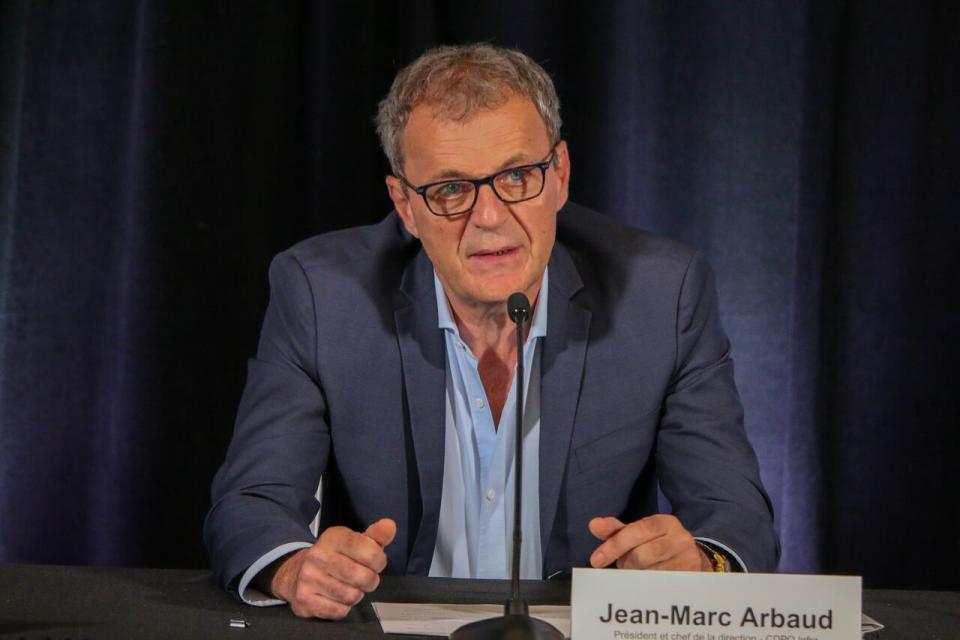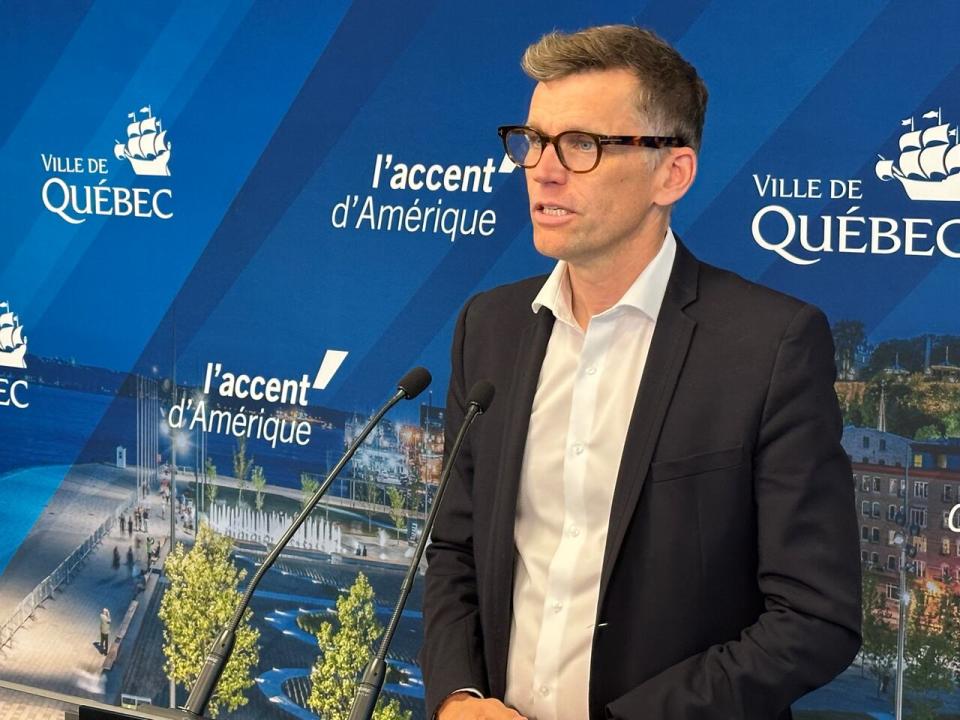$15B tramway and rapid bus network is the future of Quebec City transit, says pension fund manager
CDPQ Infra is recommending several major transport solutions for the Quebec City region, including a 35-kilometre tramway network, as part of a plan that would cost about $15 billion.
On Wednesday, CDPQ Infra, which is a subsidiary of the Caisse de dépôt et placement du Québec (CDPQ) — Quebec's pension fund manager — that specializes in major infrastructure projects, presented its Plan Circuit intégré de transport express (CITÉ).
The plan is meant to provide an express transport network that responds to the economic and demographic growth in Quebec City. It comes nearly six months after Transport Minister Geneviève Guilbault announced the government would be turning to the Caisse after rejecting Quebec City's tramway plan.
Tramway is 'backbone'
In its report, the CDPQ says the tramway network, described as the "backbone" of the plan, would make up about half of the cost, with a price tag of about $7 billion. The network would be made up of two lines. One would run from east to west across 28 kilometres, linking the Le Gendre, Sainte-Foy, Saint Roch and Charlesbourg sectors in phase one — as first envisioned in 2018 by Mayor Régis Labeaume's administration.
A north-south tramway line would span seven kilometres and link Quebec City to Lévis, Que., on the South Shore.
CDPQ Infra says the demographic growth of the South Shore and densification in Lévis warrants the construction of the line linking the municipalities.
"Such a structuring link would make it possible to respond effectively to changes in demand, by offering a rapid and frequent transport service capable of adapting to the city's size," reads the CDPQ Infra's report made public on Wednesday.
Phase two of the Caisse's plan would include D'Estimauville and phase three would expand the network to Lebourgneuf.
30 km of reserved bus lanes
CDPQ Infra's proposal also includes a 30-kilometre network of rapid bus service, also known as SRB, as well as an additional 30 kilometres of reserved bus lanes and high-frequency buses.

The company says it's important to avoid increasing the flow of vehicles at peak times, and in the long term, having an "efficient and fast" connection between the city centres of Quebec City and Lévis.
Jean-Marc Arbaud, president and director of CDPQ Infra, says this is the best network to address all the transport issues in the region.
The buses will be available 20 hours a day, seven days a week.
'Finally feel like we're in a modern city'
Quebec City Mayor Bruno Marchand was happy with the announcement and is focused on building up the city's infrastructure, even if the city isn't managing the project.
"I just only care about one thing … being able to find solutions," said Marchand.

Jason Ortmann, who lives in the city's central Limoilou district, says the proposed tramway would pretty much fly past his door.
He sees this announcement as a positive one, bringing Quebec City closer to larger urban centres such as those in Europe with affordable and reliable public transit options.
"You can just zip through the city and get to where you're going," said Ortmann.
"I just need to go to the stop and I know it's coming. So that's a huge improvement.… It's going to finally feel like we're in a modern city."
Having followed the tramway saga for years, he says this project is "way overdue." But he's concerned the government could still press pause on the plans.
"Are they going to say, well, let's wait another while and cause prices to hike even further?" he said.
3rd link would only shift congestion, reports Caisse
The report recommends structuring public transport between Quebec City and Lévis "via the existing bridges," instead of adding a much discussed third link for cars to the South Shore. It says a third link for cars would offer "no ultimate benefit in terms of mobility."
Studying six transit corridors covering 25 kilometres along the St. Lawrence River, the CDPQ concluded that the benefits of such a link would be limited during rush hour and would simply result in a "shift in congestion."
"The actual time-saving on the existing bridges would be limited, averaging five minutes, and would ultimately result in a significant increase in congestion on the road network in the Quebec City area," the report states.
Feds open to financing part of project
Jean-Yves Duclos, minister of public services and procurement, said Wednesday that the Quebec City region is the "only city of comparable size that does not yet have modern public transit."
"It obviously gives us reasons to move faster to fund modern public transport in the Quebec City region," said Duclos.
Last month, the federal government reached a deal with Canadian National Railway (CN) to acquire the historic Quebec Bridge.
Duclos said he would accept a request for financing the tramway project, if asked, noting that the government was prepared from the start to finance up to 40 per cent.
"We've been here since 2018, and we were here when Mr. Couillard and Mr. Labeaume announced the project six years ago," said Duclos, referring to the former premier and Quebec City mayor.


